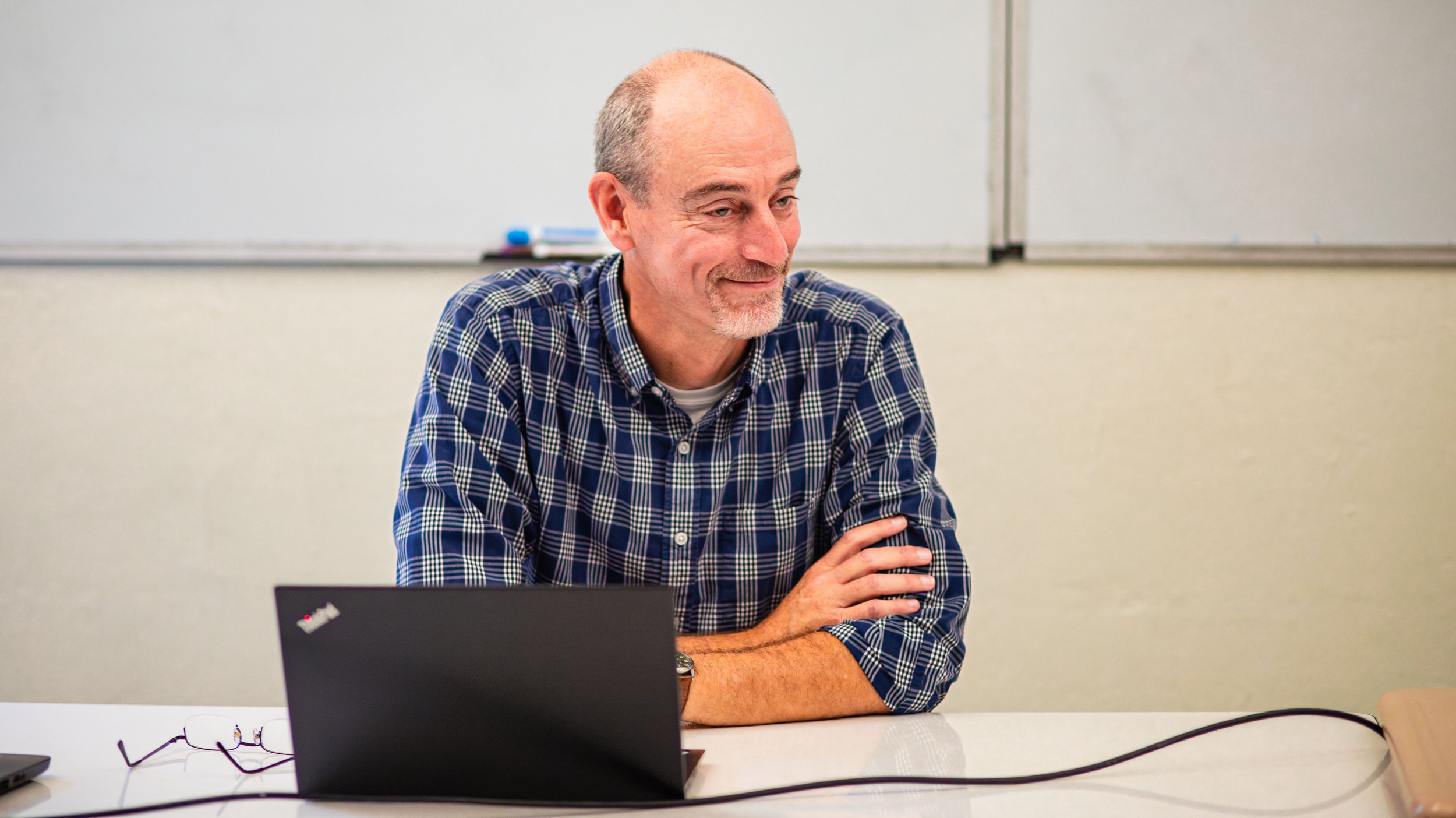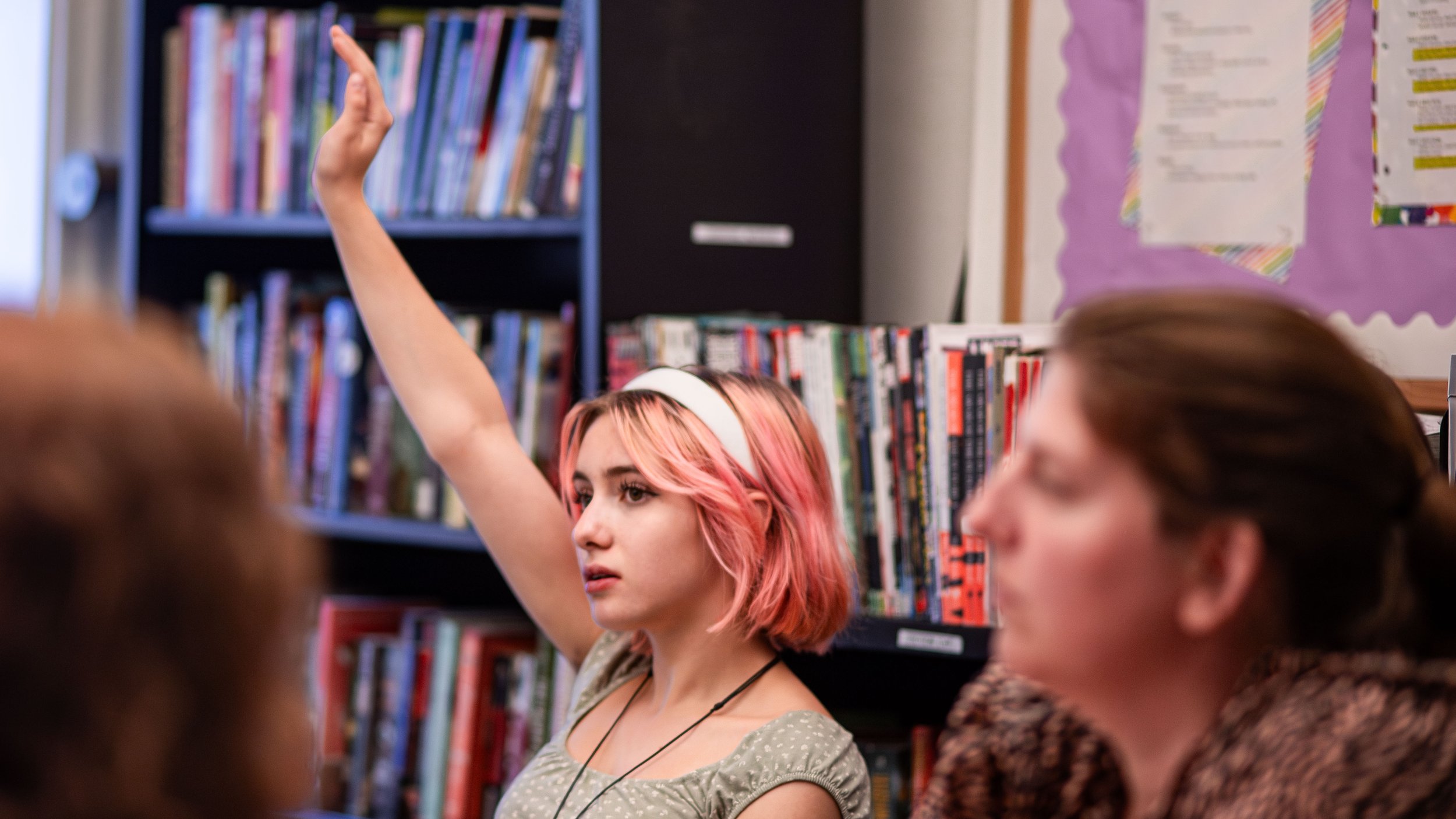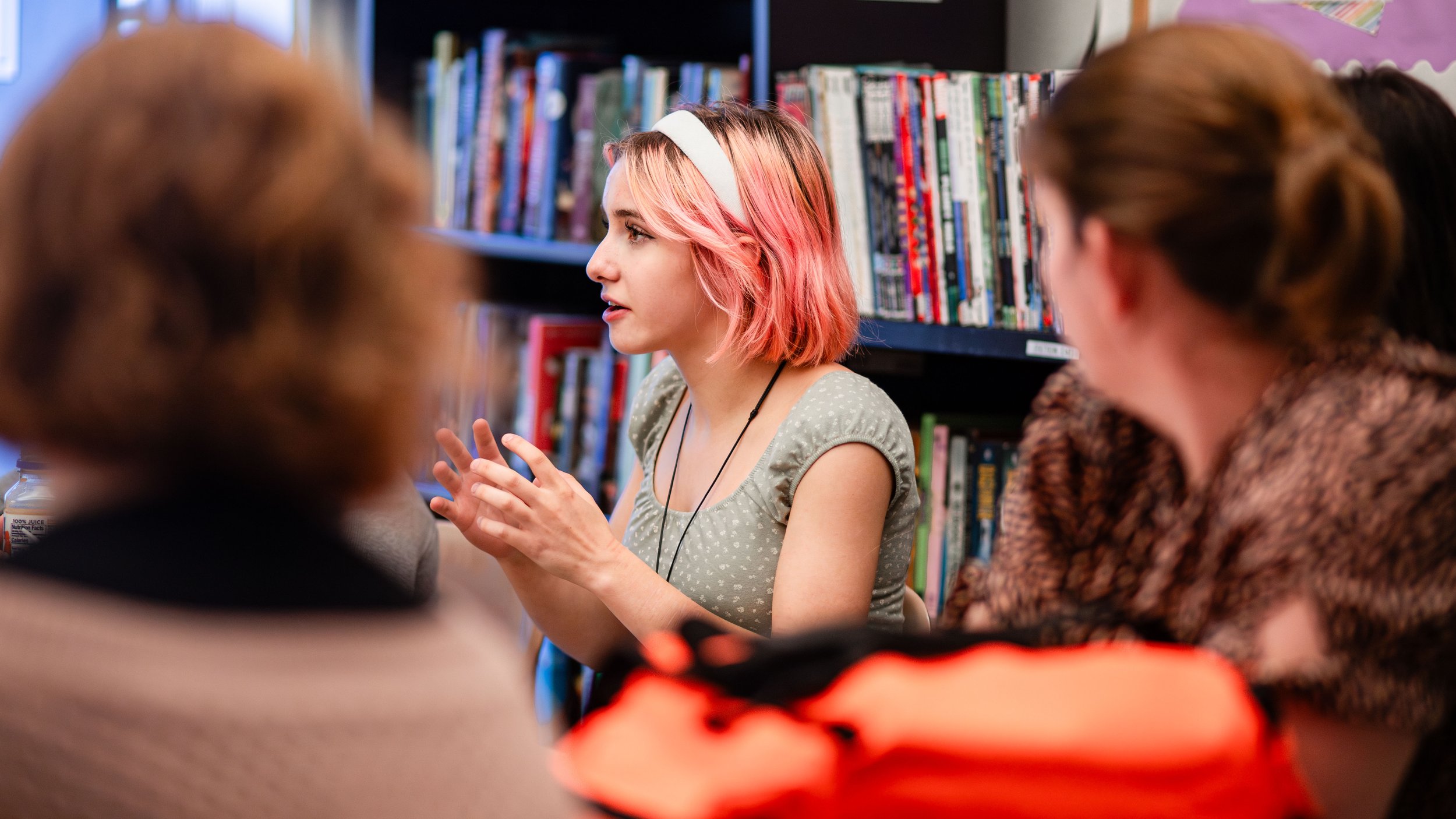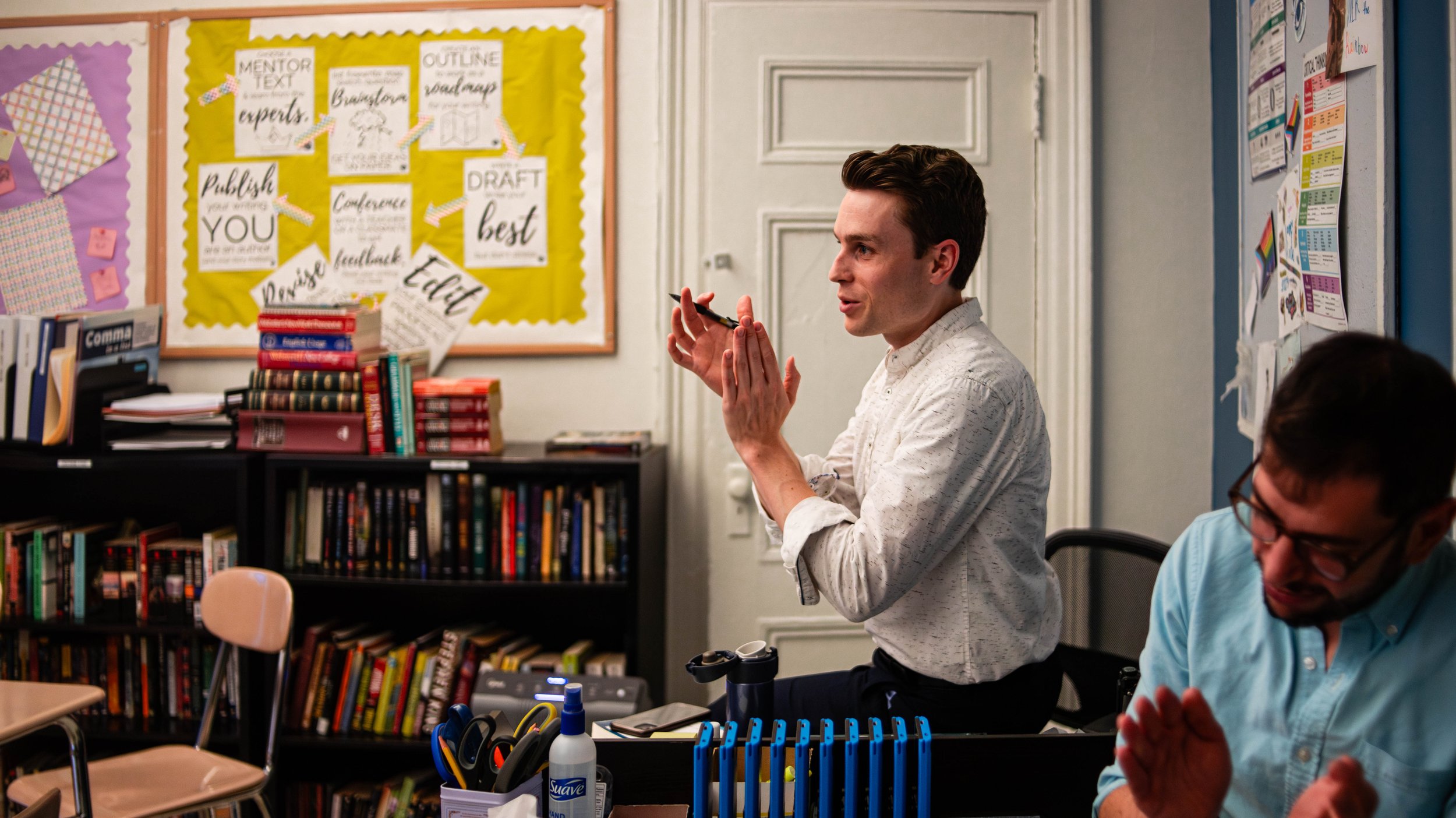James Esseks Visit
James Esseks, a leader in the fight to ensure equality and justice for LGBTQ people and people living with HIV, visited Stevenson in early October. He is the Director of the ACLU Lesbian Gay Bisexual Transgender Queer & HIV Project and as an attorney, has worked extensively to fight anti-LGBTQ and specifically anti-transgender bills in the states and to fight the use of religion to justify discrimination against LGBTQ people.
James addressed a packed classroom. He started by introducing himself and his role, then briefly reviewing the history of the ACLU's involvement in defending LGBTQ rights, going back as far as the 1930s, when they defended the right of the play "The Children's Hour" to depict homosexuality. Bringing us up to his work today, James then discussed three particular cases he is currently arguing. The first case is focused on healthcare, on the right of a young boy to continue hormone therapy, when the state of Arkansas made that illegal, even with the consent of the parents and doctors. The next case is about restroom access in a school in Indiana, and a particular student who was only provided a bathroom option that had the effect of outing him as transgender. Finally, James talked about a case against Alaska Airlines and its gendered dress code, and the nonbinary and genderfluid person who successfully argued that it was unlawful. James talked us through the stories of each of these cases and how they have moved up through different courts at this time.
He then took student questions and spoke about strategies for winning lawsuits, effective persuasion, and the process of bringing lawsuits on behalf of people's civil rights. When asked about his most memorable case, he spoke about the story of Edith Windsor, whose case was a major precedent leading to the nationwide legalization of marriage equality. The students were fascinated by James's work and his insights into the legal system, and were curious to learn more about how they could get involved. James shared that "It was great to see the students’ interest in these issues, as well as to realize how much many of them already know."






